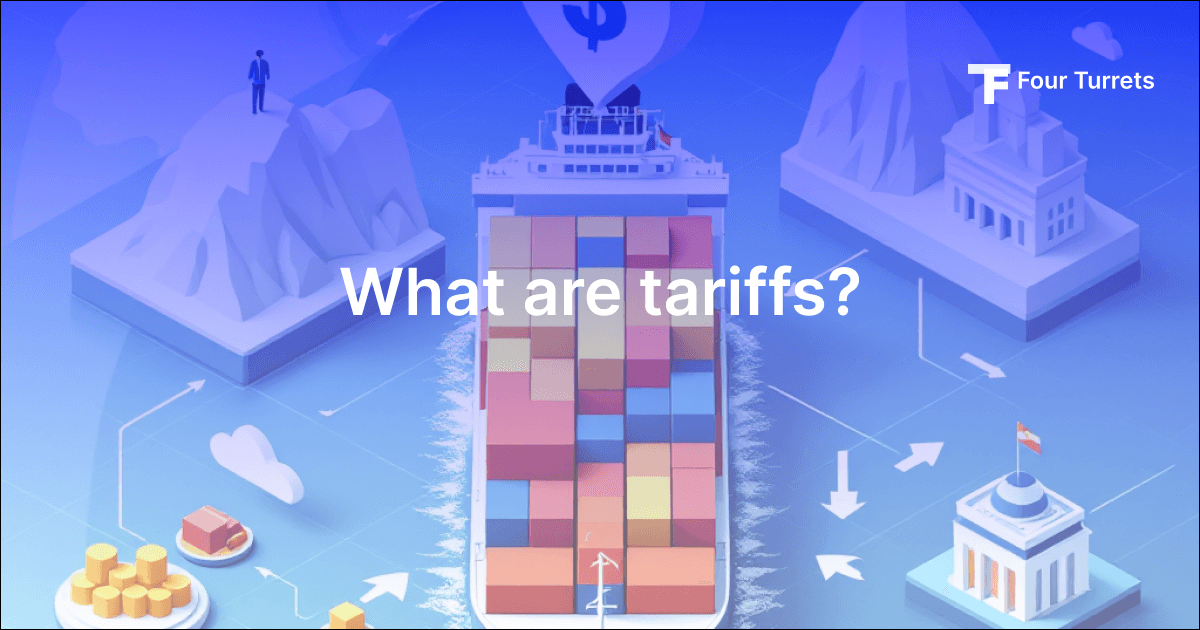Global trade can be complex and one term that frequently appears is “tariff.” But what exactly is a tariff, and how does it influence everything from the price of goods to global economic relationships and the trade deficit? Understanding tariffs is crucial for businesses and consumers alike.
In essence, a tariff is a tax imposed by a government on goods and services imported from other countries. Think of it as a form of custom duties and import duties. These taxes increase the price of imported goods, making them less attractive to domestic consumers compared to locally produced alternatives, or domestic production. Governments implement tariffs for various reasons, including protecting nascent domestic industries, generating revenue, or addressing perceived imbalances in trade, such as a persistent trade deficit.
However, the imposition of tariffs, especially high import tariffs, can have far-reaching consequences, sometimes even sparking trade disputes.
What Exactly is a Tariff?
A tariff is fundamentally a cross border trading tax. When goods arrive at a country’s border, the importing government levies this tax, which must be paid before the goods can enter the domestic market. This added cost is typically passed on, at least partially, to the end consumer, making imported items more expensive.
Tariffs can take different forms:
- Ad Valorem Tariffs: A fixed percentage of the value of the imported goods (e.g., 10% tariff on imported cars).
- Specific Tariffs: A fixed amount per unit of the imported goods (e.g., $1 per imported shirt).
- Compound Tariffs: A combination of both ad valorem and specific tariffs.
Why Do Countries Impose Tariffs?
Governments utilize tariffs as a tool for several strategic and economic objectives:
- Protecting Domestic Industries: By making imports more expensive, tariffs shield domestic producers from foreign competition, allowing local industries to grow or maintain market share.
- Generating Revenue: For some governments, particularly in developing nations, tariffs can be a significant source of income.
- Addressing Trade Deficits: Countries might impose tariffs to reduce imports and encourage exports, aiming to improve their balance of trade. However, the effectiveness of tariffs alone in correcting a trade deficit is often debated, with factors like currency valuation and broader fiscal policies also playing significant roles National
- Security: Tariffs can protect industries deemed critical for national security.
- Retaliation: Tariffs can be used as a retaliatory measure against unfair trade practices or tariffs imposed by other countries, sometimes escalating into trade disputes.
The Impact of Tariffs
While intended to achieve specific goals, tariffs have multifaceted impacts:
- On Consumers: Consumers generally face higher prices for imported goods and potentially for domestic goods if competition decreases. Tariffs can translate into significant cost increases for households.
- On Domestic Producers: Protected industries may benefit from reduced foreign competition, potentially leading to increased sales and job retention/creation. However, domestic producers relying on imported components may face higher production costs.
- On Importers: Businesses importing goods face increased costs, potentially reducing their profit margins or forcing them to raise prices.
- On Exporters: Exporters in the country imposing tariffs might face retaliatory tariffs from other nations, harming their ability to sell goods abroad.
- On International Relations: Tariffs can strain relationships between countries, potentially violating trade agreements and leading to disputes or even trade wars Navigating these complexities requires careful strategic planning, often involving insights into global trade challenges.
Tariffs and Trade Wars
One of the most significant risks associated with tariffs is the potential escalation into a trade war. A trade war occurs when countries repeatedly raise tariffs or other trade barriers against each other. This tit-for-tat escalation can disrupt global supply chains, increase costs significantly create economic uncertainty, and harm multiple economies. Economists often express concern that widespread use of high tariffs could trigger such conflicts.
Are Tariffs Good for Consumers?
From the perspective of the end-user or consumer, tariffs generally have a negative impact on them. The primary effect is an increase in the price of imported goods in the country. This reduction in purchasing power acts similarly to a tax increase. While proponents argue tariffs protect domestic jobs, the direct cost to consumers through higher prices is a well-documented consequence Reduced competition can also lead to less choice and potentially lower quality over time.
Tariffs in the Broader Economic Context
Tariffs are just one instrument in a government’s economic policy toolkit. Their effectiveness often depends on how they are implemented and whether they are supported by other policies. Global trade is also governed by numerous free trade agreements designed to reduce or eliminate tariffs between member countries, promoting freer international trade. Imposing tariffs can sometimes conflict with these agreements. Ultimately, the impact of a tariff is complex, influencing domestic product markets, consumer prices, international relations, and the national trade deficit.







